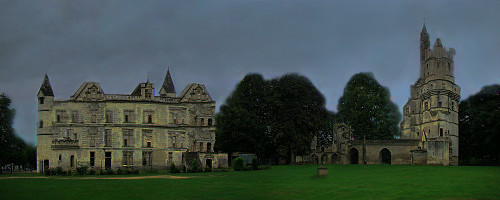
The Counts of Vermaldois have noble ancestors dating back more than 1,500 years ago, at the time of the reign of Louis I, son of Charlemagne; a prestigious dynasty, unfortunately, in fact extinct more than a century before the French revolution; yet a Count of Vermaldois still sits in his mansion in Ambrief, in upper France, around 80 miles northeast of Paris.
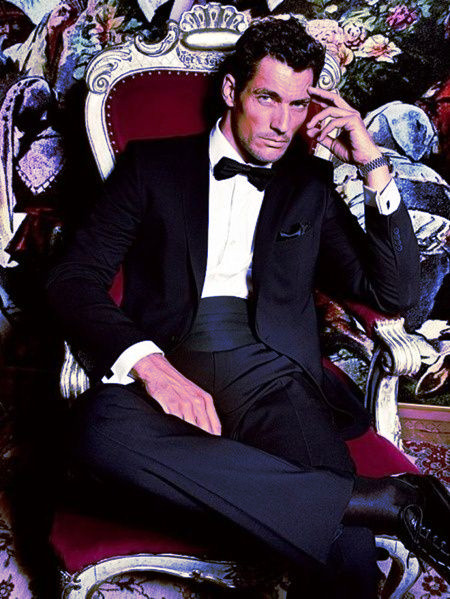
Charles Bluh, Count of Vermaldois, loves to reside in this hermitage that looks more like a castle than a palace, isolated for most of the year and unknown to the world. Bluh has always avoided any form of advertising; when he moves, he practically always does so in disguise under a false identity, and is extremely generous in silencing journalists and paparazzi when his possible night raids, especially in Paris, New York and LA attract gossip. Bluh is tall, elegant and solid, endowed with a posture that leaves little doubt on its noble origins; His ways are particularly refined, to this day he loves to handwrite his letters to his friends and personally dictate to his secretaries the official correspondence and the letters to his subordinates. Although his isolation is not rare his letters, often simple provisions on how to change and move investments: generally large transactions, with important returns, but long-term, which confirm his talent and his ability to constantly grow the its already considerable capital. In fact, although it is still common today to turn to him, with deference, through his title, there is no doubt that his power no longer has heraldic reasons, but is rooted in the possession of important stock packages, many banks, for a value that is believes it exceeds ten billion euros. His mansion is full of servants who look after him with a devotion typical of distant times and who live almost perennially inside the solid walls of the palace; visiting it therefore means engaging in a kind of spiritual retreat, even if often the activities are anything but monotonous litanies. I had received the invitation for a week of music and art from the Count about a month in advance with a precious gift that he knew well how much I appreciated: a violin attributed to a student of Stradivari of 1782 bought by Sotheby's for over 80,000 pounds. It was certainly not only its value to impress me; its workmanship and its amazing sound could have convinced me to immediately modify my turné even if I had not already known the extreme value of attending his meetings. I was therefore delighted to be able to return to visit this patron accepting the challenge of the hopping trip up to Ambrief brought by his female chauffeur on an old Daimler Double-Six of 1932, a jewel kept perfectly tidy and equipped with all the most advanced comforts including internet connections, minibar with automatic mixer and every other devil, despite the innate reluctance of the Count to personally take advantage of these gadgets.
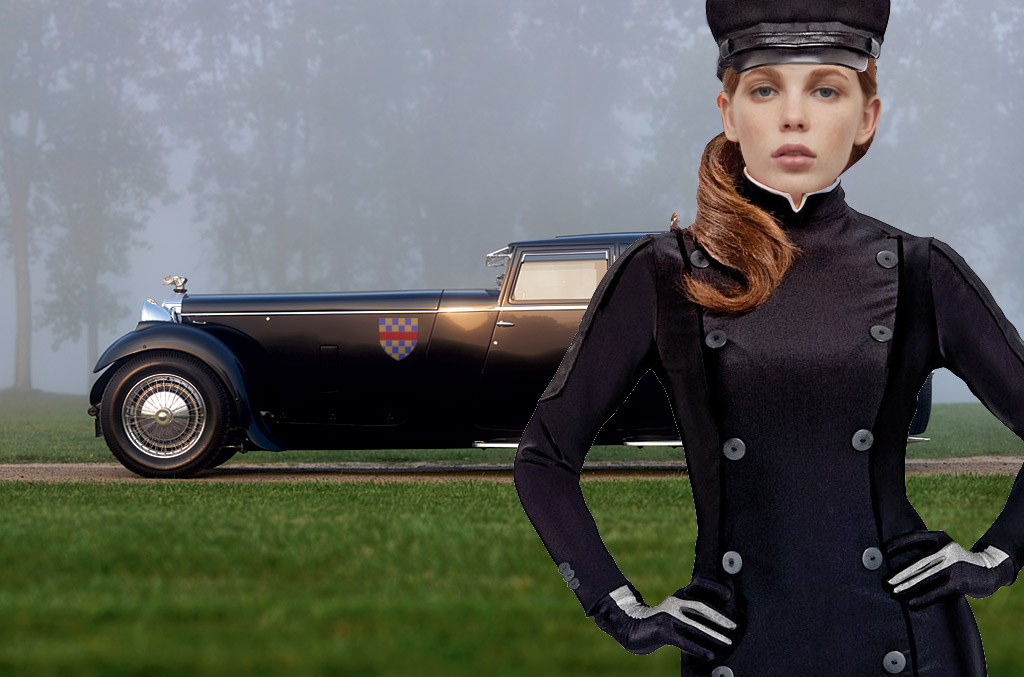
As always the trip was embellished by a precise coupling wanted by the Count, I found myself together with a model Armena, beautiful and that gave me the impression that the trip was too short to enjoy such a shaky intimacy; while my friend painter Assunta Kota, arrived in the morning, had traveled with the daughter of a Russian oligarch who adored poetry and knew how to declare the most vulgar verses of Catullus with the refinement of a work by Botticelli, as Assunta used to say. The company consisted of half a dozen guests who largely transcended their remarkable aesthetic virtues and boasted a truly unique artistic elegance. In fact, it was my third time at Ambrief and I had renounced to hypothesize the cost of these gatherings: rare wines, elaborate discussions, marvelous companies, scenographies built with abundance of details, unimaginable animations, different for each gathering. I knew that Bluh loved to offer priceless gifts to their guests together with the invitations, perhaps not to risk rubbish, except to ask each one a religious confidentiality about what was happening in the mansion. I also knew that at the arrival was granted a second object, common object to all, which he called the "knick-knack": this time it was a brooch of emeralds made in a bouquet, commissioned by him to Van Cleef. I found the Count between the famous architect Sarah Metz with a set by Crudelia De Mon and Darine, the splendid "poetess" mentioned by Assunta, all three with the knickknack already pinned on their own clothes and Bluh finished the sought-after presentations asked precisely by Darine of appoint the knick-pin as a ritual gesture that formalized my joining the gathering.
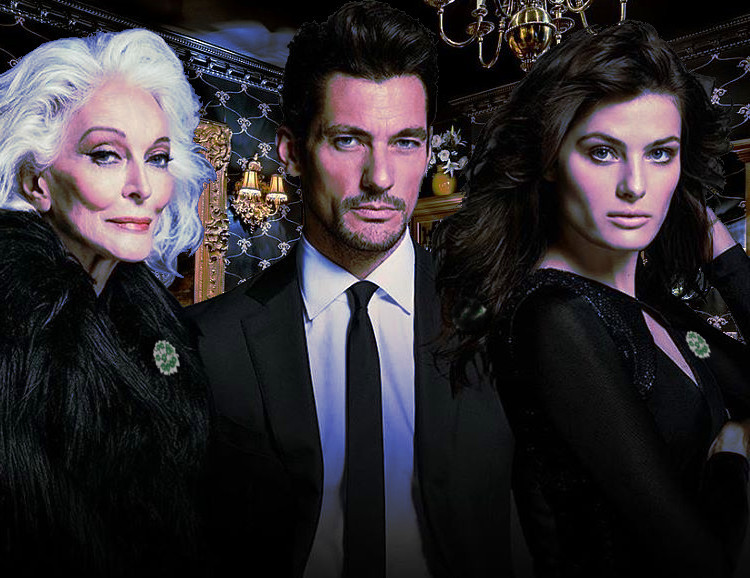
The brooch was a marvel and we were invited to bring it throughout the week, of course I would not have known on what occasion I could put it in the future, but in fact I had also held the previous trinkets as priceless memories of these voluptuous artistic experiences. Normally the days spent in the daytime idleness, dedicated to rest and recovery of the forces spent during the wild nights in which passion reigned artistic. They were not dissolute nights in the traditional sense, even if no vice was denied, but those who were elsewhere were vices here considered as salt on the dishes, from rare essences to synthetic drugs with incredible properties; they were employed without emphasis or particular interest; indeed, we generally tried to moderate ourselves just to avoid losing consciousness and memory of such unique moments. In fact, the nights dragged along celebrating at the highest levels poetry, painting, music, philosophy, all declaimed in the elegant and refined setting of the manor of Bluh, which compared to the spartan outer garment, inside boasted rooms of an incomparable wealth. Almost always time passed in the light of candles and scented essences that soaked the air and created the unique atmosphere that allowed guests to give the best of themselves and their creativity. At that gathering, the second night was dedicated to a new game: a night-time hunt, conducted with dark glasses using bluish lenses, based on the Count's opinion on a new and still secret and developing technology. The glasses clearly showed every detail even in the utmost darkness and allowed us to hunt our sparkling targets. We hunted in the park using crossbows and pulling peacocks that through the glasses appeared iridescent and changing, selected for that game and modified with special spray.
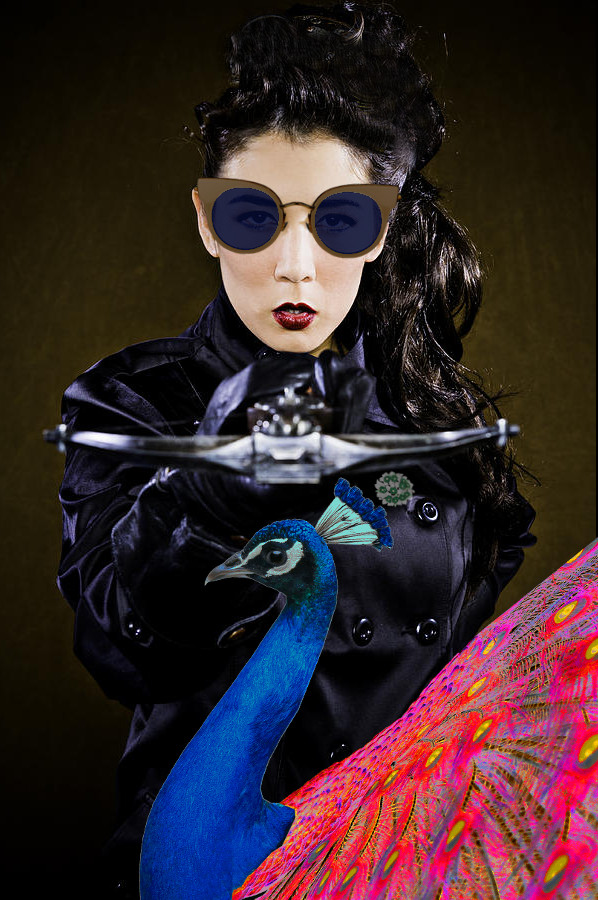
Kota refused to play a role in the hunt, and with her was Lucine, the beautiful Armenian model with a particular voice, worthy of a soprano of agility, she too hated to kill and found that exercise a disgusting custom. The dinner we were served based on our prey, with refined alternatives for our vegetarian guests; immediately a heated, but refined, controversy over hunting and food was born. In reality the intense discussion was dominated by the side of the hunters from Tira, another beautiful guest of the Count, with a haughty and indomitable bearing, which, by the way, had won the hunt after a long head-to-head with Simon Mendez, the young poet Uruguagio. The Count claimed after a special toast with his rare liquor to appeal to my abilities and begged me to perform the third Bach sonata to soften the spirits too bright; the thing worked even if I am sure that the dreaming perfumes contributed in addition to the special attentions of the so-called "pets" who took care of us and served drinks and food. They were beautiful models, and even models, often with their faces covered by elegant masks, delegated to please the guests well beyond the duties of a waiter even if the Count did not like the most intimate services to be held in public and avoided giving life to orgies during rallies that were not exclusively "intellectual". Bach's sonata was so complex, and I was so tired, that only the exhilaration due to the liquor gave me the courage and the strength to confront that piece in front of such a chosen audience; the performance ended up satisfying my taste, however, I was interrupted by an unexpected visit on the final: Bluh suddenly stood up and asked to forgive him, quickly moving towards the entrance in a completely unusual way. Christine was outside the mansion, as beautiful as wet, even though it was not actually raining or at least it had not rained during the hunt. The girl looked shocked and it seemed at least strange to take her to the music salon instead of lending her the right care; there were countless troubled questions that sought answers, but Bluh with her sure eloquence asked to desist and let Christine, so he introduced us, the woman was warmed up and fully resume before asking any question.
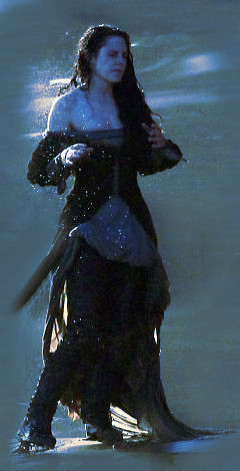
A heavy red damask covered her as she sat on a sofa topped by two beautiful models belonging to the Count's vast "pet" repertoire. I was immediately struck by how the beauty of the new arrival could tarnish that of the two models, despite its neglected conditions, the crumpled dress and hair soaked. My eyes were all for her, as well as those of Simon and, apparently, the male servant present; in a completely different way, but equally understood, more suspicious and subtly hostile, the looks of the women present in the hall unfolded.
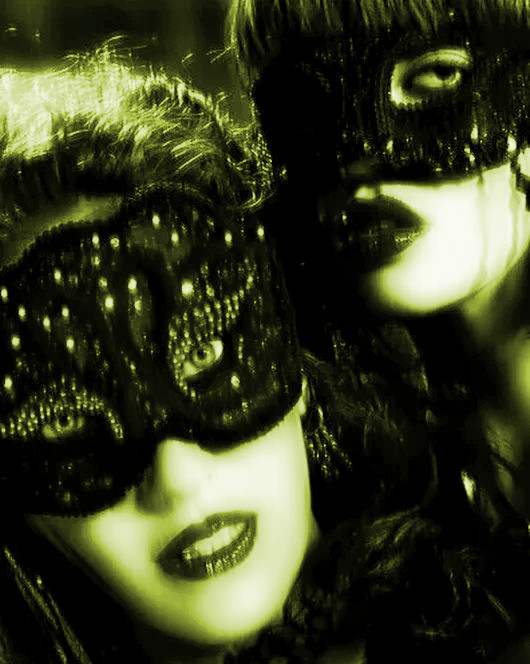
Bluh held her there, in front of everyone, almost as if she wanted to revive the night that had now gone off; the curiosity, the protective instinct, the suspicion, everything made Christine the focal point of that moment and the tiredness could not dilute its intensity; she did not speak, except for some inaudible and occasional whisper in the ear of the Count, when he approached her; in some moments his face seemed shocked by a hallucinatory experience, but in general it seemed mostly unnaturally absent, as if it were tranches. Finally, Bluh begged us again to excuse him and accompanied Christine by asking us to defer any matter to the next day when she had refreshed herself. Two strong pets closed the doors behind the Count and stood before them almost as though guarding. The storm of questions left unanswered immediately gave rise to a lively discussion from which only Sarah, the Australian architect who had abandoned herself to sleep on one of the Louis XV armchairs that adorned the room, was estranged. During our colorful discussion, all of a sudden we heard rapid, popping noises, the whistling of a whip, and a series of muffled moans in the background. In fact, the meetings of the Count did not lack moments of intent, games of seduction, domination, often proposed as a starting point to develop the evening, but as already said these scenes were more typically developed in the private rooms of each guest with support of the complacent "pets". There were also very particular jokes: I still remember when, on a previous visit, a true duel with a saber was organized following a violent quarrel; in the clash the Count amputated a limb of his adversary with a sharp blow that died bloody in a few minutes between terror and general dismay: it was nevertheless a well-orchestrated joke and the guest with his limb made fun of us for the rest of the meeting. At least half of the guests had already participated in the meetings of the Count and then quickly arose the most fanciful theories, to which was added a hysterical crisis of Lucine and an enterprising action by Simon to reach the other room, discouraged by the guardians so courteous how resolute. In the end it was Tira who decided for everyone and called the Count for clarification, after an endless sequence of lashes heard through the heavy doors. The doors opened to show a particular scene, in which Bluh with the sleeves rolled still wore a long whip and Christine was locked to a gimmick that appeared a Gothic cross between an old typographic machine and a trestle of torture, her bare back was furrowed by signs of whip and his mouth, now free, still bore a faint sign of the elaborate gag like the bite placed on the horses that had dampened his moans.

A maid promptly took the whip from the Count's hands, while other pets were freeing Christine. We were astonished before the scene, some still thought it was one of the jokes, while on the face of others it was clear a mixture of excitement and disapproval. "Bring her into her quarters," the Count beckoned us to sit down and told us with brief comments on the story of Christine, a young German manager who had fascinated too much a rich Persian prince in his commercial negotiation; as a result the prince had her kidnapped and turned into his slave, adding it to a nourished harem of beauties from all over the world. Our comments and questions that tried to interrupt him and to understand how much truth there were, were all kindly ignored by Bluh who continued the story with complacent smiles. During prigonia, Christine, like many other unfortunates, had undergone a detailed process of plastic surgery and had recently begun an intense conditioning program that some would probably call brainwashing. This was the treatment the prince imposed on his prisoners. Christine had managed to escape from the clinic where she was, a few miles away, just before she completely lost her ability to react; in the escape it had ended up in the river and only fortunately it had reached the mansion of the Vermaldois. The calm and sobriety of the story, the tone of the Count's voice and his authority made what would otherwise have appeared as a crazy story; at times our eyes turned to Christina and her face felt, while the "pets" led her away. Simon asked with horror, without failing to betray a grimace of excitement on his lip. Bluh replied almost surprised by the question "The Prince is a friend of mine, I had to show good neighborliness" "So he will not call the police_" "It would be indelicate, Christine would not want for sure and moreover probably the policemen in this area are on the Prince's payroll and would immediately report it back to the clinic. He will be my guest, here he is safe " Bluh proposed an inscrutable smile and Tira approached the Count gently kissing his cheek and whispering a sentence in his ear A silence ensued that ended in our transfer to bed, tried by the weary night and almost drugged by that experience as well as by the essences and perfumes. We spent the whole week asking questions about this fact, not failing to storm the Count of questions, all elegantly circumvented in such a way as to generate in everyone the reasonable doubt that it was a kind of collective illusion created ad hoc by our guest for end the never-ending night of the hunt. Assunta quickly completed an oil painting by Christine that Bluh placed in a room next to one of his portraits; it was a particular, but touching representation, I often found myself observing it and often I practiced to repeat that sonata, inspired by that painting, discovering skills that I did not think I possessed and often perceiving at the end of the piece that other guests had reached me too and listen to ecstasy.
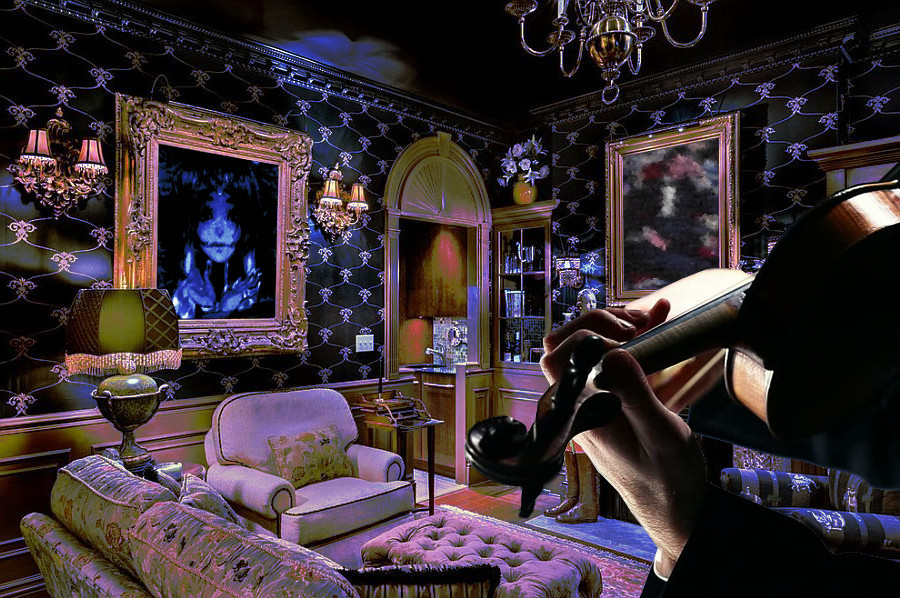
In any case, Christine did not show up and we no longer knew about her until the end of the week, when the Count told us that she had "escaped" the night before and that there was no trace of her. Many asked if it was the prince who kidnapped her, but Bluh assured that it was not so, indeed that Christine had recovered completely and was probably safe now. Of Christine, in addition to the blinding beauty, I vividly remember only those few words, vague and barely comprehensible, that Tira had whispered in the ear of the Count that night "If you think so, you'll have to let her escape before He comes to reclaim his slave" Before leaving, I asked for clarification from Tira, who reacted by kissing me tenderly on the mouth "love, friendship, hospitality and justice are natural forces that only those who possess the Supreme Power can master. And you certainly know how to master the Bach Sonatas, one day maybe I will organize a meeting and I will ask you to renew the interpretation of that piece using this particular passion of yours "



No comments:
Post a Comment